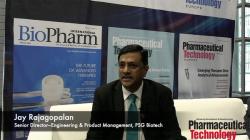
OR WAIT null SECS
- About Us
- Advertise
- Contact Us
- Editorial Info
- Editorial Contacts
- Editorial Advisory Board
- Do Not Sell My Personal Information
- Privacy Policy
- Terms and Conditions
© 2024 MJH Life Sciences™ and Pharmaceutical Technology. All rights reserved.
FDA Discusses Current and Future Take on Compliance
Industry executives share insight into the future direction of drug manufacturing and the supply chain.
A Q&A, by Angie Drakulich
In July 2010, the US Food and Drug Administration issued an enforcement strategy document signed by the heads of the key agency centers and offices. The strategy document states, "...some regulated entities will disregard even the clearest regulations..." and that, "All FDA components are committed to swift, aggressive enforcement actions to protect the public health." Since then, industry has been uncertain of exactly what FDA has planned and how enforcement actions may or may not change. Pharmaceutical Technology talked to Rick Friedman, director of the Division of Manufacturing and Product Quality (DMPQ) within the FDA's Center for Drug Evaluation and Research, Office of Compliance, to get a better sense of the agency's thinking on enforcement, quality, and corporate responsibility.
FDA's Friedman
PharmTech: In general, what changes should industry expect with regard to enforcement actions? Do you anticipate any new types of enforcement authorities/activities to be approved by Congress in the future?
Friedman: FDA will continue to pursue swift, aggressive, and effective enforcement to ensure consumers have access to safe, effective, and quality drugs. FDA expects to increase the number of risk-based surveillance inspections of certain drug manufacturing sites around the world, including those that make over-the-counter finished products. At this time, I cannot predict the legislative timeframe for modernizing the Food, Drug, and Cosmetic Act to allow more effective regulation of imported drugs.
PharmTech: DMPQ, and FDA overall, is very involved with the International Conference on Harmonization's Quality Implementation Working Group (IWG) initiatives regarding quality systems and risk management. Now that the ICH IWG workshops are complete, do you think industry has a better sense of how to address and use the harmonized principles in its daily manufacturing? Also, what is the agency's goal in this area? For example, it's been noted that FDA officials and reviewers/inspectors are also on a learning curve when it comes to the ICH quality guidelines and how to implement them.
Friedman: The ICH IWG workshops were well-attended and promoted an understanding of the harmonized Q8-Q9-Q10 guidelines. Both regulators and industry attended these conferences to improve mutual understanding of an integral set of recommendations on development, risk management, and quality systems. FDA's ultimate goal for these guidance documents is to promote innovation and improve the quality assurance of pharmaceuticals for consumer use. We have made gradual progress toward cultivating an environment in which firms promptly identify and correct manufacturing deficiencies that may occur during the manufacturing life cycle. More training and interaction will help to promote awareness of the Q8–Q9–Q10 concepts, and continue to clarify terminology and expectations. With better understanding by both industry and regulators of the opportunities presented by the modern quality system, I think we will see broader implementation.
PharmTech: Agency officials have increasingly noted "corporate responsibility" in various public statements and conferences during the past year. Can you explain why this issue is important, and to what extent the agency is willing to go to uphold corporate responsibility?
Friedman: Expecting corporations and their management to be accountable for the quality of the drugs they produce is not a new policy. Since the 1975 Park decision, courts have recognized that individuals who manage businesses that make and sell FDA-regulated products have an affirmative legal duty to ensure the safety of their products. Because corporate executives are in the position to prevent or correct drug quality problems, it is only logical that they are the ones ultimately held responsible if their firm produces poor quality drug products.PharmTech: Since the agency has turned up the volume, so to speak, on its enforcement approach, has DMPQ seen any change thus far in industry feedback with regard to product quality and compliance?
Friedman: Industry is aware that FDA is placing more emphasis on swift and aggressive enforcement actions and encouraging modern quality systems and PAT approaches. While the results are only anecdotal at this point, we have seen some very promising developments. It will take some time before we can readily measure the overall trends.
PharmTech: FDA has been successfully building its overseas presence for a couple of years to help train other national regulatory agencies and to increase inspections of foreign facilities. There is still a lot of grumbling that overseas audits are more lenient than domestic audits (e.g., companies outside of the US have advance notice of inspections, whereas US companies do not). Do you agree with the characterization? What will FDA do to level the playing field?
Friedman: We do not agree with that characterization. Foreign inspections do pose their own unique challenges. FDA only has explicit authority to take legal action on products in its jurisdiction (the United States). Although we do not have authority to seize products in foreign commerce nor enjoin foreign firms, we can administratively block adulterated products from entering the US by placing firms on import alert if we find significant violations during an inspection. This is a faster sanction than seizure or injunction, and is a strong one.
PharmTech: There has been some talk of electronic inspections increasing—including at the ICH workshop in October 2010. Do you see this model growing in the future and if so, what advantages might it offer for industry and for regulators?
Friedman: The inspection of a facility's conditions and practices are done on site. It is analogous to buying a house. You want to see it before you buy it. Indeed, you even do a final walk-through. A manufacturing facility is extremely complex, and CGMP audits require one to observe numerous manufacturing practices like sanitation (such as personal hygiene), state of repair of equipment, whether personnel practices match what is written in SOPs and staff are qualified, contemporaneous completion of batch records, whether operations are being supervised, laboratory conditions and controls, how a firm deals with deviations, etc. With that said, we obtain and leverage electronic information on facility statuses quite routinely these days, particularly when collaborating with our international regulatory counterparts.
PharmTech: Are there any major new guidances affecting drug manufacturing that industry should look for in 2011?
Friedman: We expect FDA's guidance on process validation will publish as final in 2011. In addition, CGMP regulations and guidance for Positron Emission Tomography drugs will go into effect in December 2011. We are also working on other guidances that should enhance industry's understanding of regulatory expectations regarding drug manufacturing and product quality.
Related Content:



